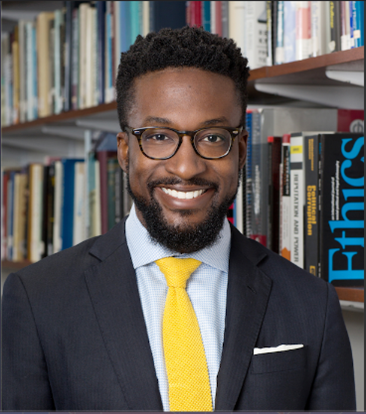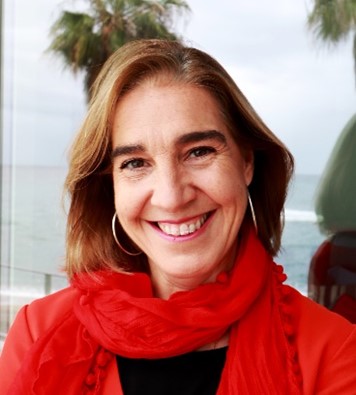Educational Ethics, AI, and the post-truth era: Navigating the Challenges and Dilemmas of the 21st Century
Winston C. Thompson, The Ohio State University, USA 



Ana Romero-Iribas, Universidad Rey Juan Carlos, España 



The social and technological changes of the 21st century have transformed education, presenting numerous ethical dilemmas for education professionals across areas such as technology integration, mental health support, immigration, sustainability, inclusion, child protection, cyberbullying, and misinformation. These challenges include questions about the appropriate roles of AI in teaching, promoting civic participation without imposing ideological views, and establishing selection criteria for teachers that prioritize student welfare and safety.
While ethical questions in education have historically been addressed through various disciplinary lenses including philosophy, psychology, sociology, politics, and history, today's landscape demands a dedicated field of educational ethics that combines rigorous philosophical inquiry with practical ethical dilemmas. With evolving legislation, technological advancements, and shifting sociopolitical contexts, educators and policymakers face increasingly complex ethical decisions. This volume aims to illuminate these challenges while fostering collaboration among stakeholders in the educational ecosystem: families, professionals, policymakers, and ethics experts.
The multidisciplinary approach is essential to this initiative's success, bringing together educational philosophers, humanists, psychologists, social scientists, and legal scholars. This diversity of perspectives will contribute to a comprehensive understanding of educational ethics. Importantly, this work focuses on real-world ethical challenges rather than abstract scenarios, providing academically rigorous content applicable to educational practice.
This monograph explores ethical challenges across various educational contexts, with particular attention to artificial intelligence integration, civic leadership in a post-truth environment, and emerging ethical dilemmas in different societies.
Post-truth environments are characterized not merely by the proliferation of misinformation, but by a fundamental reordering of epistemic authority where emotional resonance and personal belief frequently supersede evidence-based reasoning. This paradigm shift has profound implications for educational institutions, which have historically positioned themselves as custodians of knowledge and bastions of critical inquiry. Educational professionals now find themselves navigating tensions between respecting diverse perspectives and upholding commitment to verifiable knowledge—a dilemma that raises fundamental questions about the purpose of education itself.
Educational ethics in a post-truth era must therefore grapple with novel responsibilities that extend beyond conventional pedagogical concerns. Educators face the ethical imperative to cultivate critical media literacy while avoiding partisan approaches that might further entrench societal and political polarization. Institutions must consider their role in countering "echo chambers" that reinforce intellectual isolation, while remaining sensitive to accusations of ideological bias. Educational policymakers are challenged to balance evidence-based practices with competing stakeholder values, particularly when empirical findings contradict deeply-held convictions. Each of these dimensions raises profound questions about appropriate boundaries between education and advocacy, individual autonomy and institutional responsibility, and the extent to which educational spaces should directly mirror or ultimately transcend the epistemological fracturing evident in broader society.
The scope encompasses all educational levels, from early childhood to higher education, featuring contributions from established and emerging scholars in educational ethics. We specifically aim to include perspectives from both Spanish and English-speaking contexts to enrich discourse and facilitate cross-cultural dialogue.
The overarching goal is to contribute high-quality theoretical insights that positively impact educational practice and policy globally. These theoretical foundations aim to guide ethical decision-making across diverse educational settings, bridging theory and practice to equip stakeholders with tools for navigating contemporary ethical complexities.
In summary, "Educational Ethics, Artificial Intelligence, and the Post-Truth Era: Addressing the Challenges and Dilemmas of the 21st Century" represents both an academic endeavor and an interdisciplinary initiative to shape educational ethics discourse. We invite scholars committed to advancing ethical inquiry in education to contribute to this dynamic, cross-disciplinary dialogue.
DescriptorsThe articles presented can respond, but are not limited to the following topics:
- Philosophical foundations of educational ethics: theoretical approaches to addressing contemporary ethical dilemmas in education
- Ethical implications of artificial intelligence in educational contexts: assessment, instruction, and institutional decision-making
- Navigating ethical tensions in civic education: promoting democratic participation while respecting pluralism and avoiding indoctrination
- Ethical dimensions of educational policy in a post-truth era: balancing evidence-based practice with competing value claims
- Mental health challenges in education: ethical responsibilities toward students and educators in contexts of widespread psychological distress
- Academic freedom and expression in polarized times: balancing institutional values of inclusion with open intellectual discourse
- Normative frameworks for professional ethics in education: responsibilities of educators toward diverse stakeholders
- Ethics of inclusion and educational justice: challenging systemic inequities while respecting difference
- Educational institutions as ethical communities: cultivating moral agency and responsibility in polarized times
The following are some questions that can serve as a guide for those interested in presenting articles on the topics covered in the monograph:
- How should we conceptualize the distinctive nature of educational ethics as a field that spans philosophical inquiry and practical application?
- What ethical principles should guide the integration of artificial intelligence in educational assessment, instruction, and institutional decision-making?
- How can educators promote civic agency and democratic participation while respecting pluralism and avoiding the imposition of partisan perspectives?
- What are the ethical responsibilities of educational institutions in countering misinformation and addressing the challenges of a post-truth environment?
- How should we balance competing ethical claims in educational policy when different stakeholders hold fundamentally different value commitments?
- What normative frameworks can guide decision-making about educational inclusion that respects both equality and difference?
- How can educational institutions serve as ethical communities that model democratic deliberation in increasingly polarized social contexts?
- What ethical frameworks should guide educational institutions in responding to mental health crises affecting both students and educators, particularly regarding questions of privacy, autonomy, and institutional responsibility?
- How can universities navigate tensions between protecting free academic inquiry and addressing concerns about harmful speech in increasingly polarized social contexts?
 Winston Thompson (The Ohio State University, USA). Winston C. Thompson holds the William H. and Laceryjette V. Casto Professorship in Interprofessional Education at The Ohio State University, where he serves as Associate Professor in both Educational Studies and Philosophy (by courtesy). He earned his Ph.D. with distinction in Philosophy and Education from Teachers College, Columbia University. Thompson's scholarship explores ethical and political dimensions of educational policy and practice, focusing on philosophy of education, race, justice, and civic education. His work appears in prominent journals including Educational Theory, Journal of Philosophy of Education, and Teachers College Record. He has edited books including "Philosophical Foundations of Education" and co-edited "Pedagogies of Punishment" (both Bloomsbury, 2023). Previously, Thompson was a Fellow-in-Residence at Harvard's Edmond J. Safra Center for Ethics and held faculty positions at the University of New Hampshire and NYU. He currently serves on the Executive Board of the Philosophy of Education Society and is completing a monograph on the ethics of teaching race.
Winston Thompson (The Ohio State University, USA). Winston C. Thompson holds the William H. and Laceryjette V. Casto Professorship in Interprofessional Education at The Ohio State University, where he serves as Associate Professor in both Educational Studies and Philosophy (by courtesy). He earned his Ph.D. with distinction in Philosophy and Education from Teachers College, Columbia University. Thompson's scholarship explores ethical and political dimensions of educational policy and practice, focusing on philosophy of education, race, justice, and civic education. His work appears in prominent journals including Educational Theory, Journal of Philosophy of Education, and Teachers College Record. He has edited books including "Philosophical Foundations of Education" and co-edited "Pedagogies of Punishment" (both Bloomsbury, 2023). Previously, Thompson was a Fellow-in-Residence at Harvard's Edmond J. Safra Center for Ethics and held faculty positions at the University of New Hampshire and NYU. He currently serves on the Executive Board of the Philosophy of Education Society and is completing a monograph on the ethics of teaching race.
 Ana Romero-Iribas (Universidad Rey Juan Carlos, Spain). Associate Professor, Universidad Rey Juan Carlos. Accredited Professor, Universidad Rey Juan Carlos. Member of the Educational Innovation and Improvement Group (IMEI), the Visual Arts and Cultural Studies Research Group (GIAVEC) and the Project “21st European Teachers”, funded by the European Commission. She has been a Fulbright Scholar at Harvard (2022) and has received other awards such as the Castillejos Scholarship. Her lines of research focus on friendship studies and educational ethics, topics on which she has numerous publications in national and international journals and editorials. In the latter she has developed several projects and collaborated with the Harvard EdEthics group. Internationally, she has been Visiting Scholar at Harvard University on two occasions and at the University of Leeds in the United Kingdom. In addition, she has been Visiting Professor at the Universidad Panamericana in Mexico.
Ana Romero-Iribas (Universidad Rey Juan Carlos, Spain). Associate Professor, Universidad Rey Juan Carlos. Accredited Professor, Universidad Rey Juan Carlos. Member of the Educational Innovation and Improvement Group (IMEI), the Visual Arts and Cultural Studies Research Group (GIAVEC) and the Project “21st European Teachers”, funded by the European Commission. She has been a Fulbright Scholar at Harvard (2022) and has received other awards such as the Castillejos Scholarship. Her lines of research focus on friendship studies and educational ethics, topics on which she has numerous publications in national and international journals and editorials. In the latter she has developed several projects and collaborated with the Harvard EdEthics group. Internationally, she has been Visiting Scholar at Harvard University on two occasions and at the University of Leeds in the United Kingdom. In addition, she has been Visiting Professor at the Universidad Panamericana in Mexico.
This special issue is linked to the Research Project “21st European Teachers”, funded by the European Comission (Erasmus+ and Teacher Academies), referenced 101104591, and to "The William H. and Laceryjette V Casto Professorship in Interprofessional Education".









